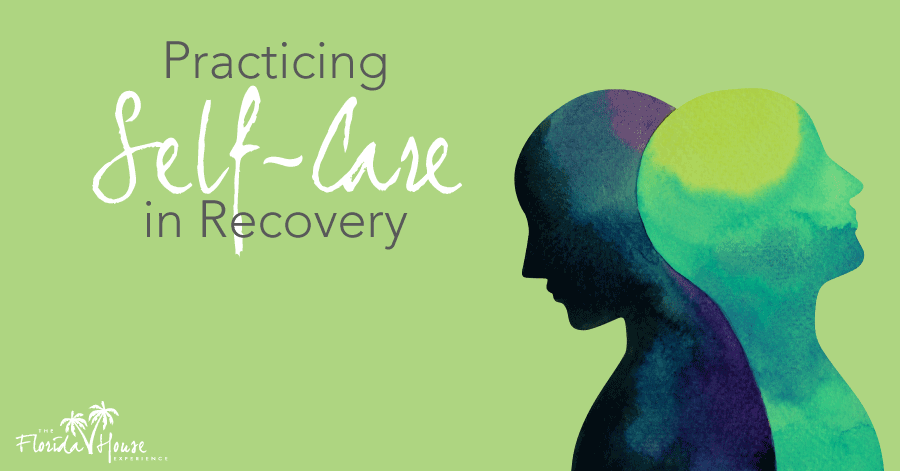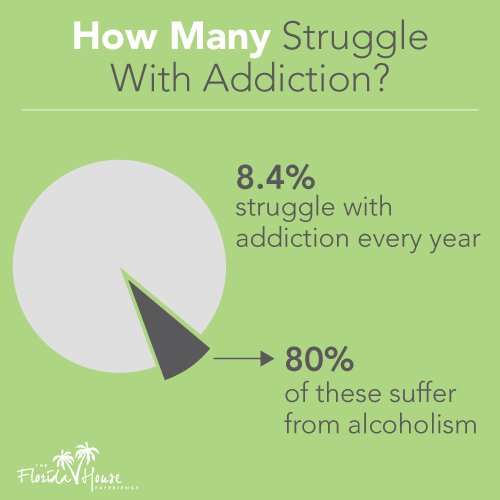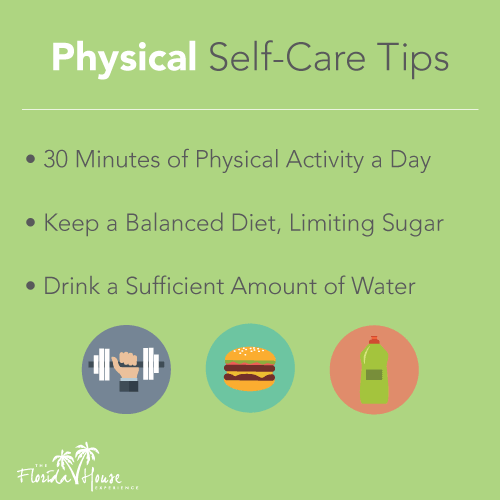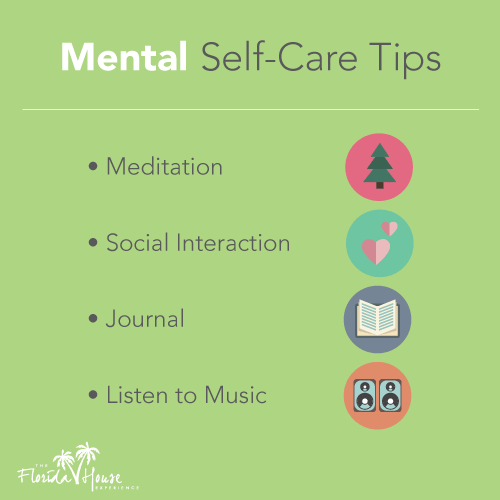
One of the main things lost when a person develops a substance addiction is the desire to maintain their health. When struggling with the addiction, the individual’s mental and physical health is not a priority because they are all consumed by using. Before the addict knows it, their health has completely deteriorated.
Being physically out of shape and mentally unstable is one thing for a person who does not face addiction, but both are much harder to deal with for a recovering addict. Once recovery starts taking place, it’s hard for an addict to get back into taking care of oneself properly because it’s usually been a long time since they’ve done so. Both physical and mental health reconstruction are vital for an addict’s complete recovery from their addiction.
What is Self-Care and Why is it Important?
 Simply put, self-care is a portion of your day dedicated to tending to your own mental and physical health. There are a wide range of activities and ways people practice self-care. This time put aside for yourself allows your body and mind to de-stress and rewind after a long day of working, taking care of loved ones, managing daily chores, etc. It also helps you to improve your confidence and self-esteem, which then leads to more future opportunity.
Simply put, self-care is a portion of your day dedicated to tending to your own mental and physical health. There are a wide range of activities and ways people practice self-care. This time put aside for yourself allows your body and mind to de-stress and rewind after a long day of working, taking care of loved ones, managing daily chores, etc. It also helps you to improve your confidence and self-esteem, which then leads to more future opportunity.
It is important for self-care to be a major priority to maintain a healthy lifestyle. Without practicing self-care, one’s physical and mental health can become greatly affected. Developing substance abuse disorders, suffering from mental health problems or even contracting viruses and illnesses at a higher rate are some of the risks to not practicing self-care.
Addiction Statistics in the U.S.
According to research, around 8.4% of Americans struggle with addiction every year. 80% of these individuals suffer from alcoholism, about 7 million of them have developed a drug use disorder and 1 in 8 of them suffer from both. The highest reported abused substances are that of easily accessible alcohol and prescription drugs.
Genetics play a huge role with the possibility of addiction. It is believed around about half of addicts inherit their addictive tendencies from their parents. Environmental factors also impact the probability of someone developing an addiction. Most people with drug addiction disorders have reported use because of friends and family who introduced them to the substance and also constantly use. Men are also twice as more likely to develop an alcohol abuse disorder, whereas both genders battle with drug abuse at the same rate.
How Self-Care Helps Addiction Disorders
When someone is struggling with addiction, they typically have little to no self-worth. This is one of the main reasons why they started using in the first place, to fill a void that they have. They often times have given up on their mental and physical health because they place more of a priority on how they are going to get their next high or drink, and this makes their addiction even worse.
Developing a self-care routine while in recovery is very important for an addict because it teaches them how to love themselves again. They usually forget how to do this because the substance they were abusing took up so much thought and effort of their daily routine for such a long period. As soon as the drugs and/or alcohol are taken out of the equation, this frees up a lot more of their headspace and time.
Once they start to remember how to practice self-care, an addict’s chance of fully recovering and staying sober becomes a lot higher. They are then able to remember the joys of life that don’t involve alcohol or drug use, and they can develop healthier habits to occupy their everyday lives with.
Physical Self-Care Tips
 Physical health is taking time out of the day to properly take care of our bodies in order for them to function at a sufficient level. Not only does this include strengthening our bodies but also nourishing them in a healthy way, as well. There are many ways and activities an individual can partake in to improve their physical health.
Physical health is taking time out of the day to properly take care of our bodies in order for them to function at a sufficient level. Not only does this include strengthening our bodies but also nourishing them in a healthy way, as well. There are many ways and activities an individual can partake in to improve their physical health.
In order to strengthen one’s body, you must be physically active. This doesn’t necessarily mean training for a marathon or being able to lift three times your body weight. It can take the form of simple tasks or participate in something active like taking a walk down the street, biking in a park, playing with pets, etc. Research suggests that as long as you get at least 30 minutes of physical activity in a day, your health will continue to thrive.
Proper nutrition is also the main key to maintaining your physical health. Making sure you have a balanced diet that includes all the main food groups and moderating your intake of sugars and fats can really make a difference. Drinking a sufficient amount of water each day will also increase your chases of staying physically healthy.
Mental Self-Care Tips
 Statistically speaking, someone is more likely to develop a mental health disorder than any other kind of disorder. Continuing to cultivate your mental health is another vital part in upholding good overall health. Here are some easy ways to practice mental self-care:
Statistically speaking, someone is more likely to develop a mental health disorder than any other kind of disorder. Continuing to cultivate your mental health is another vital part in upholding good overall health. Here are some easy ways to practice mental self-care:
- Meditation: join a yoga class or just meditate at home by yourself. Meditation is a great way to open up your mind to relax and forget about constant stress.
- Social Interaction: this doesn’t have to mean going to a concert or a festival with a million people in attendance. Just being with a group of your friends or family can suffice.
- Journal: a good way to absorb and accept what is going on around you that you cannot control is by writing it down. Write about your daily life, your thoughts or your feelings.
- Listen to music: make a playlist of your favorite songs and put your headphones in. Music is a great outlet to find someone else who has written about something you may be going through.
Treatment for Substance Abuse and Mental Health
When practiced, self-care is an amazing tool to fight addiction and help with the recovery process. Our team at Florida House offers many substance abuse and mental health programs that will get you back to where you need to be in your self-care.
If you or a loved one is fighting addiction or a mental health disorder contact us today at (833) 596-3502 and get the information you need to start regaining control of your life again.






